Where did Ukrainian nationalism come from: the struggle for the MOV
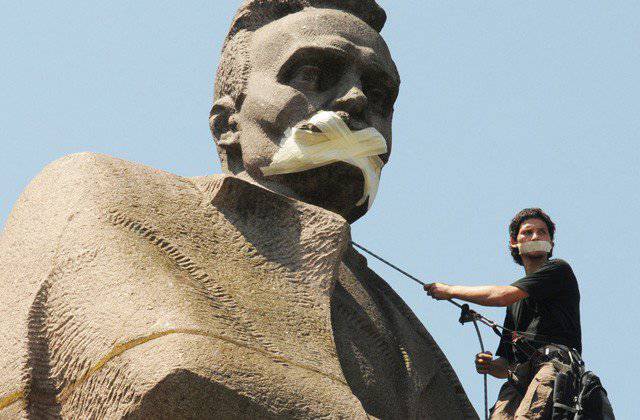
In 1860-1880, the Ukrainian language became the foundation upon which Ukrainophile appeared.
"Russian Planet" continues the series of articles on stories Ukrainian nationalism. In the previous material was shown the birth of this movement. This time, the development of Ukrainian nationalism in the second half of the nineteenth and early twentieth centuries will be highlighted.
The death of Nicholas I and the subsequent cessation of large-scale censorship affected the disgraced Ukrainophiles — former members of the fraternity of Cyril and Methodius. Nikolai Kostomarov returned from exile and received a professorship at St. Petersburg University, where he was so warmly welcomed that after his first lecture he did not leave the audience, but was rendered on the shoulders of enthusiastic students. Taras Shevchenko and Petr Kulish also moved to Petersburg. The mood prevailing in the imperial capital of the time instilled hopes of change in the founders of Ukrainian nationalism, and it was then that the main vector of activity of this intellectual movement was defined - the struggle for the Ukrainian language.
Prevented the "Polish conspiracy"
The question of the Ukrainian language was the key for Ukrainophiles of the time. As the nationalist theorist Catherine Verderi notes, any nationalism needs a symbol that instantly awakens national feelings in the hearts of citizens. And for Ukrainian nationalism of that period, language became such a symbol.
Through the development and dissemination of the literary Ukrainian language through typography, Ukrainian nationalists of 1850-1860-s expected to receive broad popular support. The culmination of their work was the magazine Osnova, published in 1861-1862. The backbone of the editorial were Kulish and Kostomarov, as well as young authors - F. Rylsky and V. Antonovich. Each issue of the journal was opened by the works of the recently deceased Taras Shevchenko, who at the end of his life turned into a living symbol of Ukrainian separatism. Including through the “Basis”, the works of Shevchenko had a great influence on the worldview of Ukrainian educated youth, and his grave became a kind of “sacred place” for all Ukrainophiles.
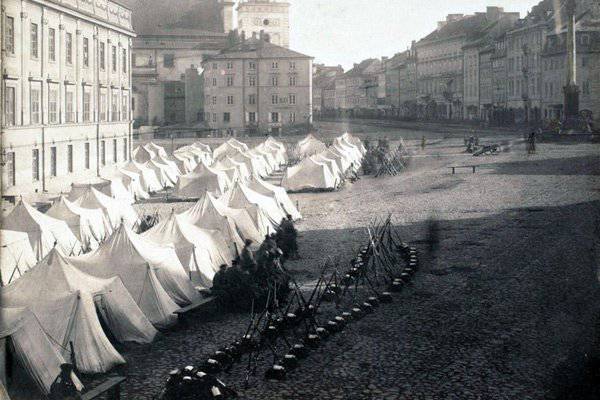
The symbolic meaning of the Shevchenko figure is eloquently shown by the opinion “Our father is Shevchenko, our mother is Ukraine”, which is widespread in post-reform Ukraine. With the advent of "Basics", Ukrainians received a platform to promote their ideas. The effect was not long in coming. For example, D. Doroshenko called the article “Two Russian nationalities” of Nikolay Kostomarov “The Gospel of Ukrainian Nationalism” printed in the “Basis”. And the security department noted that “most of the young generation is infected with Ukrainophilism; for which, of course, you need to thank the "Basis". In parallel with the journal, N. Kostomarov began raising funds for the mass publication of fiction in the Ukrainian language.
At the beginning of 1860, Ukrainian nationalism as a movement had already outgrown a stage of purely scientific interest, and the process of creating institutions for mass agitation of broad sections of the population began: first of all, preparation of mass accessible typing of educational and church literature in the Ukrainian language. This could potentially lead to the mobilization of the peasantry, which, after the abolition of serfdom in 1861, was in a constant expectation of gaining the “true will”, which in the future could well be associated with the demands of independence. Not surprisingly, one of the last factors that caused the imperial center’s response was the call of the Poltava “community” (the name of the Ukrainian Philosophy circles in Ukraine - RP) to the “communities” of other areas to create a petition to the Literary Committee of St. Petersburg asking for permission to teach in schools in Ukrainian.
The reaction of St. Petersburg was not long in coming. Despite the considerably greater liberality of the post-reform government in comparison with the times of Nicholas I, it did not intend to tolerate the activities of Ukrainophiles, which seemed to go beyond the framework of cultural education and ethnographic research, acquiring the character of political separatism. The position of official Petersburg was formulated by the articles of the famous conservative Mikhail Katkov, in which he, arguing with Kostomarov, denied the existence of two Russian nationalities and two languages. In his opinion, the activities of Ukrainophiles were the result of a well-thought-out “Polish conspiracy” in which the latter were only pawns.
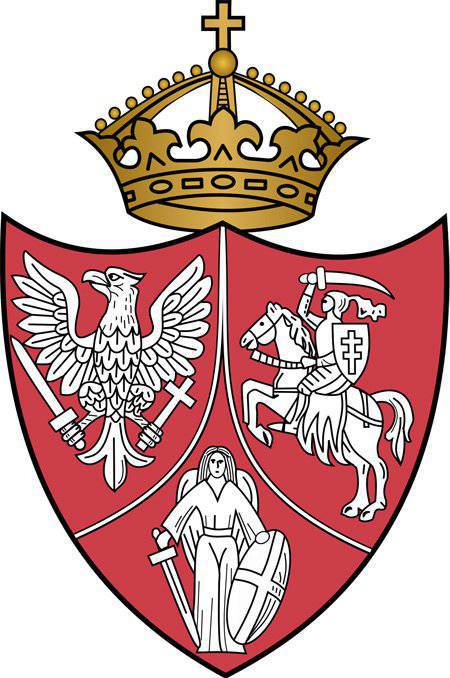
In the then historical context of the next Polish uprising, such theories of Polish intervention in the activities of the communities enjoyed great support in the administrative circles of St. Petersburg. Polish insurgents often did a disservice to Ukrainian nationalists. Thus, they included the figure of Archangel Michael, the heavenly patron of Ukraine, as an element of the coat of arms of the uprising, which clearly strengthened the suspicions on the banks of the Neva.
The tsarist government was disturbed by two points in the activities of Ukrainian nationalists. First, the prospect of separatism in Ukraine itself, and secondly, the hypothetical possibility of the participation of Polish insurgents in it. The result was a circular from the Minister of the Interior, P. Valueva, on July 16 of 1863, de facto banning the publication of any works in the Ukrainian language that go beyond the limits of fiction. Including the publication of books of religious content, primers and school textbooks - all that could easily be spread among the peasant environment - was banned. The practical consequence of the circular was a reduction in the rate of literacy among the Ukrainian peasantry. Pavel Valuyev himself considered his circular rather a defensive measure against Polish influence.
Ems Restraining Decree
In the first half of 1870, a new generation of Ukrainophiles attempted to circumvent the circular and revive the activity of the Ukrainian national movement. The most prominent figure of this period is undoubtedly Mikhail Petrovich Dragomanov - a historian, journalist and writer. Initially, being mainly a historian and a folklorist recognized in Europe, Dragomanov defended the idea of federalization of the empire in his articles on Ukrainian literature. The literary studies of Mikhail Drahomanov were not limited to the territory of Russia. He also paid much attention to the study of Ukrainian folklore in Galicia and Bukovina, where young Ivan Franko became one of his most notable students. In general, the personality of Drahomanov influenced many cultural figures of Ukraine of that time. Interestingly, he was the uncle of Lesya Ukrainka, one of the key figures in Ukrainian literature.
The center of the Ukrainophile activity of 1870 was the Kiev branch of the Imperial Geographic Community, which initiated research on Ukrainian folk culture, and also sought to bring the Ukrainian literary language, as described in the Kulish Bible and Shevchenko's verses, to the broad masses of the population. The importance of this task was determined by the fact that even in the 1870-ies, Ukrainian nationalism, as a complex worldview, continued to remain primarily a cultural movement among the part of the educated circles of this region. Political demands were not yet clearly formulated and mainly concerned the termination of the policy of obstructing the education of the Ukrainian peasantry on the basis of the Ukrainian language.
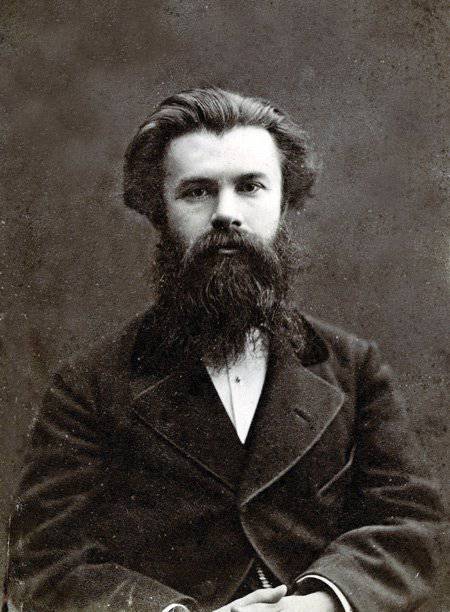
The activities of Drahomanov and other Ukrainophiles caused concern among the pro-Russian circles of the Ukrainian elite. In 1875, the Assistant Trustee of the Kiev School District, Mikhail Yuzefovich, sent a letter to the head of Section III, in which he accused the Ukrainian enlighteners of wanting "free Ukraine in the form of a republic, with the hetman at the head." The outcome of the letter in Petersburg was the Ems Decree issued in 1876 and supplementing the main principles of the tsarist government’s policy on the territory of Ukraine, set forth in the Valuev Circular: limiting the use of the Ukrainian language only in collections of historical documents and so-called fine literature and preventing the spread of Ukrainian literacy among the peasantry was supplemented by a ban on the importation of books written in Ukrainian into the territory of the Russian Empire from abroad without special authorization. The Kiev branch of the Imperial Geographical Community was closed, and Drahomanov was forced to emigrate. This decree was not revoked until the October 17 Manifesto of 1905, although in the 1881 year some relief measures were made: printing of fiction in the Ukrainian language is permitted.
Thus, by the beginning of the nineteenth century 1880, Ukrainian nationalism was in the most difficult position since its inception. Despite the numerous efforts of the Ukrainian intelligentsia, the peasantry remained unaffected by national propaganda. Censorship in the press showed high efficiency, and the founding fathers of the Ukrainian idea either died, like Shevchenko, or became less active, like Kulish and Kostomarov. In the fight against the imperial center for the mass distribution of the literary language, Ukrainophiles suffered a defeat at that time. Moreover, the movement could not legally form political demands. However, the history of Ukrainian nationalism as an idea has not ended - it only changed its center.
The new generation of Ukrainian nationalism: Hrushevsky and Franko
Having failed on the territory of the Russian Empire, Ukrainian nationalism was further developed on the territory of Austria-Hungary. The center of the movement was Lviv University, namely the Department of General History, which at that time was headed by the eminent historian Mikhail Hrushevsky, a man who deserved the highest authority among Ukrainian nationalists and in the future the first, albeit symbolic, chairman of the Central Rada of the Ukrainian People's Republic. Continuing the traditions of Kostomarov, Grushevsky wrote the fundamental work “The History of Ukraine-Rus”, in which he, taking as a basis the history of the lands that once constituted the Galician-Volyn principality, defended the view that Russians and Ukrainians are fundamentally different peoples. So, he considered the Russian ethnic heirs of the Finno-Ugric tribes, and the Ukrainians - the true successors of Kievan Rus and the descendants of the ancient Ants tribe. Giving due to the fact that Polonization has a negative impact on the Western Ukrainian population, Grushevsky adhered to the viewpoint of the plight of Ukrainians in all existing states. In fact, it was his concept of history and political views that became the political basis for the new Ukrainian national movement.
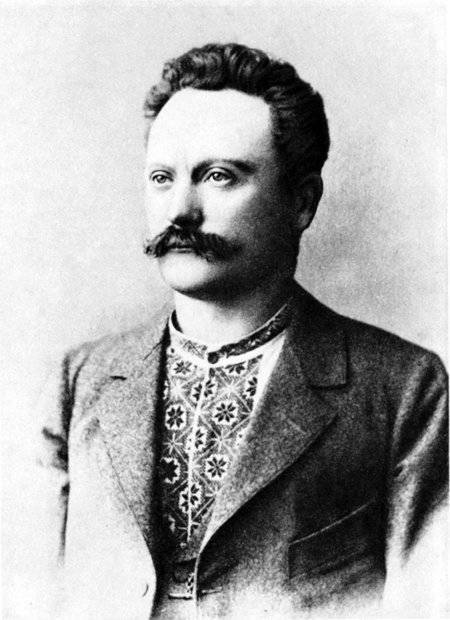
The department headed by Hrushevsky became the center of activity of the Ukrainian nationalists, and soon Hrushevsky became the leader of the entire scientific and cultural life of Galicia. What is important, Hrushevsky creates the scientific community named after Taras Shevchenko, in which many talented Ukrainian authors found work, among whom was Ivan Franko.
Ivan Franko, a native of the blacksmith family, was one of the key figures among the Ukrainian intelligentsia. On the maternal side, he was a descendant of the so-called “pen of gentry” family, or the nobility of the servicemen, and his aunt, Ludwig Kulchitskaya, had a great influence on his children's views. At first, working as a writer, Franco eventually turned into a key figure of journalism in Western Ukraine: his articles combined criticism of the social order of the then Austria-Hungary with the Ukrainian national issue that was raised again and again. But most importantly, it was Franko, along with another prominent publicist, Mikhail Pavlik, who became the founder of the first Ukrainian political party, the Russian-Ukrainian Radical Party (later simply the Ukrainian Radical Party). Soon the party was successful enough to get into the parliament of the dualistic monarchy. Thus, Ukrainian nationalism for the first time received a truly political dimension.
Waiting for the moment
The second period of Ukrainian nationalism completed its initial stage. A powerful intellectual movement was born, speaking for the independence of the Ukrainian ethnos. The historical, cultural, and linguistic bases were brought under these requirements, thus a ready-made ideology was formed, which only lacked wide dissemination and the creation of a strong general Ukrainian political organization.
The fate of the movement was different depending on the states: in the Russian Empire, it remained largely isolated from wide sections of the peasantry and the proletariat, while in Galicia the movement could take the form of a political party, even if it had primarily educated sections of the population.
The key role of the Ukrainian language, as the basis of self-identification, is the most characteristic feature of Ukrainian nationalism of that period. It was through language that the leaders of the movement hoped to unite the split Ukrainian ethnos. The lack of a rigid assimilation policy both in the Russian Empire and in the Austro-Hungarian empire created the potential for the spread of nationalist ideology among the population in other more favorable conditions. Soon such conditions will create chaos of the collapse of the Great Empires and the fire of the Civil War.
Information